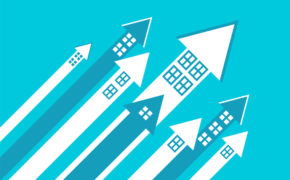The Key to Understanding Your Mortgage Payment
Thinking about buying a house, but not quite sure if you can afford a mortgage? Let’s break down the factors that will go into determining your monthly mortgage payment and discuss how to figure out how much house you can afford.
Before you start searching for homes, it’s important to consider the costs associated with homeownership. In doing so, you’ll have a better idea of the types of homes you can afford and how a monthly mortgage payment will fit into your current budget.
Let’s start by discussing how your mortgage payment is determined.
There are several factors that go into determining the cost of your monthly mortgage payment, including the size of the loan (total amount borrowed), the loan term (length of the loan) and your down payment contribution, as well as interest, taxes and insurance.
Commonly referred to as PITI, your monthly mortgage payment primarily consists of four components: principal (the remaining loan balance after your down payment has been deducted), interest (cost of borrowing money over an extended period of time), taxes (property taxes) and insurance (homeowners insurance and/or private mortgage insurance).
- Loan size: This concept is simple to understand. The larger the loan amount, the bigger your monthly mortgage payment will be.
- Loan term: Your loan term determines how long it will take to pay off your loan. Loan terms can vary anywhere between 15, 20 and 30 years. The longer the term of your loan, the lower your monthly mortgage payment will be.
- Down payment: When you subtract your down payment from the total loan amount, you are left with the principal balance owed to the lender. The principal balance will then be spread out over the life of the loan based upon an amortization schedule. This will determine how much of your monthly mortgage payment is being attributed toward principal (loan balance) and interest each month.
- Interest: This is where your interest rate comes into play. The lender charges interest (based on your interest rate) in exchange for lending you money in advance for the purchase of your home. The lower your interest rate, the lower your monthly mortgage payment will be.
- Property taxes: When you purchase a house, you will need to factor in the cost of property taxes. To help you cover the annual cost of property taxes, mortgage lenders will add in the cost of property taxes to your monthly mortgage payment, collect funds evenly over the course of the year and hold them in escrow until taxes are due for payment.
- Insurance: There are two types of insurance that may be added to your monthly mortgage payment. Like property taxes, homeowners insurance will be factored into each mortgage payment and held in escrow until the bill is due. The second type of insurance is called private mortgage insurance (PMI). Just like property insurance protects homeowners against damage done to their home, PMI protects lenders from the risk of borrowers defaulting on a loan. When homebuyers purchase a home with less than 20% down, lenders will apply the cost of PMI to the monthly mortgage payment to minimize the additional risk they are assuming. If you cannot afford to put 20% down on a house, don’t worry. There are still other ways you can avoid paying PMI.
How can I lower the cost of my mortgage payment?
- Save up for a larger down payment: Whether you have 3.5% or 15% to put down on a home, it’s in your best financial interest to save up for a larger down payment. The larger your down payment is, the lower your monthly mortgage payment will be. One way to keep your mortgage payment as low as possible is to provide a 20% down payment at closing. Not only will your monthly mortgage payment be lower, you’ll reduce the amount of interest you pay over the life of the loan and avoid paying PMI.
- Increase your chances of getting a great rate: With interest rates near historic lows, the dream of homeownership has been put within reach for many first-time homebuyers. Follow these tips to increase your chances of getting the best rate possible.
- Extend the length of your loan. When combined with a great interest rate, the right loan term can help you maximize savings over the life of your loan. The longer your term, the more time you have to pay off your loan—thus, the lower your monthly mortgage payment will be. Use this guide to choose the ideal loan term for you!
Other things to consider when evaluating the cost of homeownership:
- The cost of renting vs. the cost of buying: Another important thing to consider in your cost analysis of buying a home is to compare the monthly mortgage payment to your current cost of rent. In today’s housing market, the cost of buying a home may actually be cheaper than renting. Use our Rent vs. Buy Calculator to estimate the cost of renting versus buying.
- Determine how much you can afford: Now that you have a better idea of how your mortgage payment will be calculated, it’s time to determine much house you can afford. Follow these best practices to come up with a price that fits within your current budget. Don’t like math? Use our Mortgage Calculators to easily answer questions, such as “How Much Will My Mortgage Payment Be?” and “How Much House Can I Afford?” Our expert lending team can also help you figure out how much you’re eligible to borrow by helping you get pre-approved for a mortgage loan.
The key thing to remember when shopping for a mortgage is to evaluate all of your options. Just like finding the perfect house, there is no one-size-fits-all solution when it comes to getting a mortgage. There are many different types of mortgage loans out there, each with different advantages, and it’s in your best interest to work with a lender that can help you find the one that fits your financial needs.
Whether you plan on buying a house this summer, or a few years down the road, there’s no such thing as being too prepared. We hope you found this post helpful and encourage you to contact us with any questions you have.










